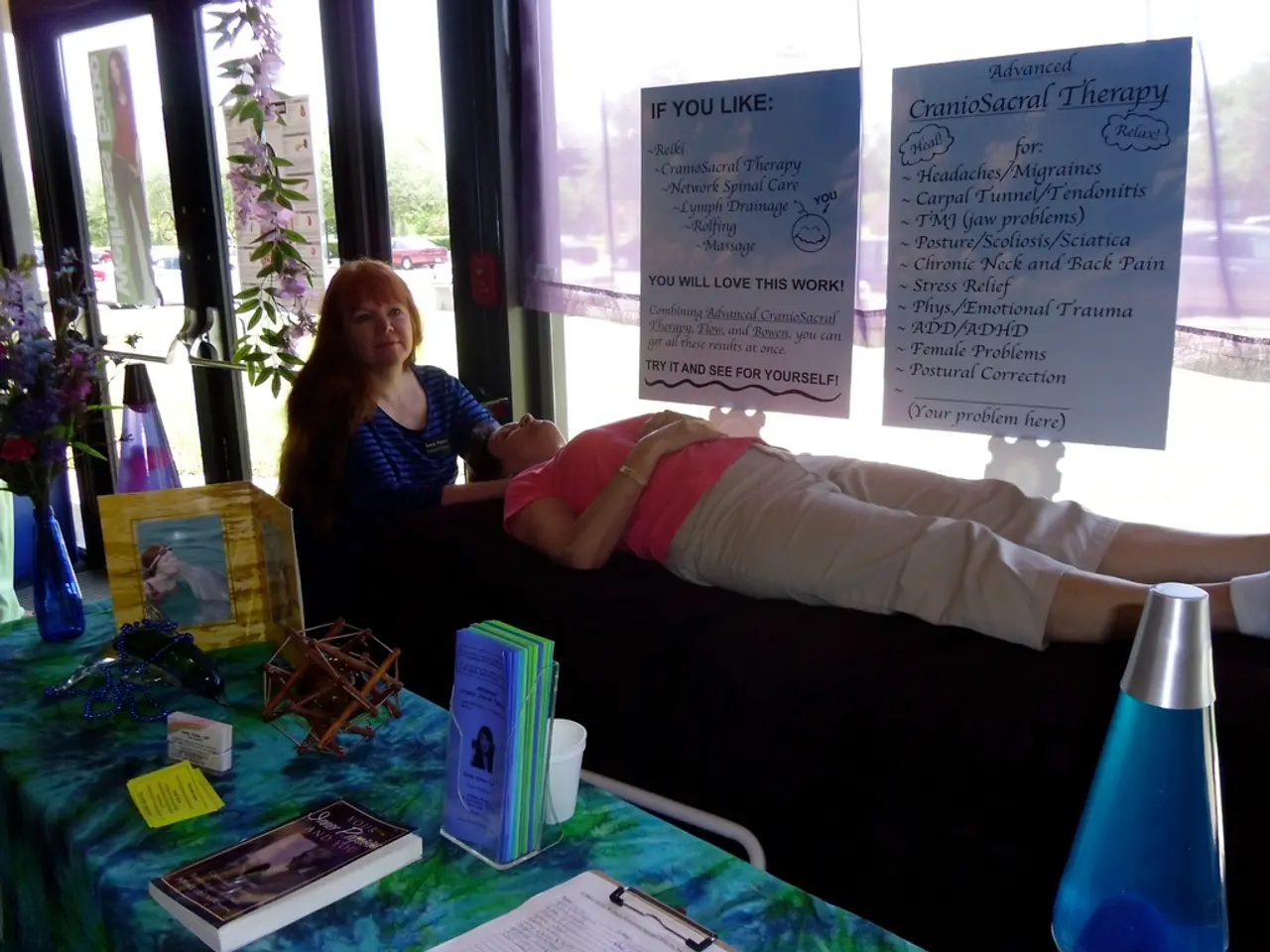Taking care of ankylosing spondylitis: Involving exercise routines, maintaining proper posture, and additional strategies
=============================================================================
Ankylosing Spondylitis (AS), a type of arthritis affecting the spine, can cause lower back pain, stiffness, and mobility issues. While medical treatments such as medications and physical therapy are essential to help relieve symptoms, improve posture, and slow the progression of the condition, home remedies and lifestyle changes can also play a significant role in managing AS symptoms and improving quality of life.
Diet and Supplements
An anti-inflammatory diet rich in omega-3 fatty acids (found in fish and walnuts) and antioxidants can help reduce inflammation and joint pain in AS. Natural supplements like turmeric (curcumin) and probiotics may also provide additional benefits. Maintaining a healthy weight through balanced nutrition lessens joint strain and may slow disease progression.
Exercise and Physical Therapy
Regular gentle stretching, core strengthening, and mobility exercises, such as swimming and yoga, can reduce stiffness, improve spinal flexibility, and support posture. Tailored physiotherapy ensures safe, effective movement, helping to manage symptoms and prevent postural complications.
Posture and Ergonomics
Maintaining good posture with lumbar-supported seating, firm mattresses, and ergonomic workspaces reduces strain on the spine. Avoiding prolonged slouching and ensuring screen height at eye level minimizes neck and back stress.
Pain Relief Techniques
Heat therapy with warm compresses or baths can relieve neck and spinal stiffness. Relaxation and mindfulness approaches may help manage pain perception and improve comfort.
Lifestyle Modifications
Quitting smoking improves symptom severity and disease outcomes, and adequate hydration supports joint and spinal disc health. It is best for a person with AS to avoid contact sports or activities that can strain the back or joints, such as heavy lifting without proper technique. Preventing stress may help to reduce the physical tension that could worsen symptoms of AS.
Tips for better sleep include being consistent with sleep timing, creating a relaxing bedroom environment, avoiding electronic devices before bed, and getting regular physical activity. Having good sleep quality is important for people with AS as poor sleep can exacerbate pain and fatigue, potentially leading to depression.
The Spondylitis Association of America recommends a diet rich in fruits and vegetables, calcium, omega-3 fatty acids, and low in processed foods, salt, alcohol, and high saturated fats. A person with a fused spine or advanced ankylosing spondylitis should also avoid manipulation of the spine or chiropractic care.
Home remedies are helpful for AS symptoms and improving quality of life, but medical treatments such as medications and physical therapy are typically necessary to help relieve symptoms, improve posture, and slow the progression of the condition. By combining these approaches, people with AS can better manage their symptoms, enhance their mobility, reduce pain, and ultimately improve their quality of life.
[1] Spondylitis Association of America. (n.d.). Ankylosing Spondylitis. Retrieved from https://www.spondylitis.org/about-as/ [2] Arthritis Foundation. (2021). Ankylosing Spondylitis. Retrieved from https://www.arthritis.org/diseases/ankylosing-spondylitis [3] National Institute of Arthritis and Musculoskeletal and Skin Diseases. (2021). Ankylosing Spondylitis. Retrieved from https://www.niams.nih.gov/health-topics/ankylosing-spondylitis [4] Mayo Clinic. (2021). Ankylosing Spondylitis. Retrieved from https://www.mayoclinic.org/diseases-conditions/ankylosing-spondylitis/symptoms-causes/syc-20352176 [5] Cleveland Clinic. (2021). Ankylosing Spondylitis. Retrieved from https://my.clevelandclinic.org/health/diseases/16702-ankylosing-spondylitis





